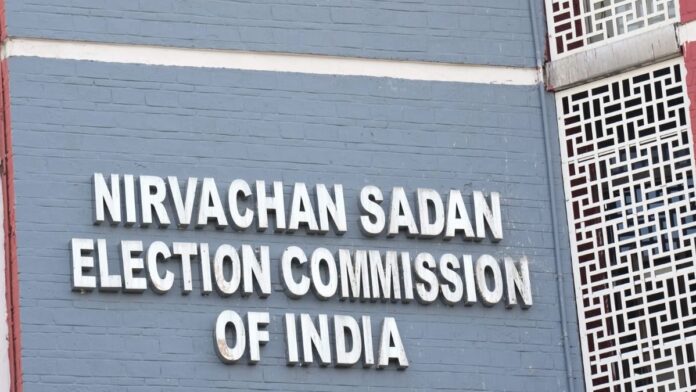The Election Commission stated on Tuesday that it is dedicated to preserving equal playing fields but that it is incorrect to take any action that could interfere with the legal and judicial processes, in response to the opposition’s accusation that it was singled out by central investigative agencies during election season.
A number of INDIA bloc political parties have petitioned the poll panel, requesting their involvement against the government’s purported abuse of probe agencies to target their leaders for corruption.
In response to the Enforcement Directorate’s detention of Delhi Chief Minister Arvind Kejriwal in connection with an alleged excise scam, the opposition parties retaliated against the government for allegedly attempting to intimidate their leaders in advance of legislative elections.
The European Commission stated in a statement that when faced with “live situations” involving political individuals who have been the subject of ongoing investigations and court orders based on criminal investigations, it followed constitutional wisdom.
The statement read, “The Commission has not found it appropriate to take any step that could overlap or overrun the legal judicial process, even though it has remained unwaveringly committed to protecting the level playing field and campaign entitlement of political parties and candidates.”
The poll panel stated that, although it is not required to, it has made public for the first time the details of the actions it took to enforce the Model Code of Conduct (MCC) during the first month of its operation.
The EC claimed that by taking this action, “misgivings and insinuations” from some quarters will be addressed and put an end to, “however small or limited.”
In order to file complaints about purported poll code infractions and related issues, 16 delegations representing seven political parties met with the commission during the one-month model code period. At the state level, numerous delegations met with its chief electoral authorities.
At the state and EC levels, about 200 complaints have been submitted by different political parties and candidates. It said that out of them, 169 cases had seen action taken.
The BJP received 51 complaints in total, of which 38 incidents resulted in action being taken. Similarly, the Congress filed 59 complaints, and in 51 of those cases, action was taken.
The EC said that it had received 90 complaints from other parties, and that 80 of those complaints had resulted in actions being taken.
As soon as the Lok Sabha election schedule was revealed on March 16, the poll code went into effect.
After a month of the model code’s implementation, the European Commission declared that it is “broadly satisfied” with political parties’ adherence to it. It also stated that the campaigns of the different parties and candidates had stayed “largely clutter free.”
The commission also announced that it has made the decision to closely monitor some unsettling tendencies and to pay more attention than ever before to certain unconventional candidates, leaders, and behaviors.
The European Commission emphasized that in implementing the model code, it has been led by its legally mandated responsibilities, institutional wisdom, equality, and transparency in transactions, regardless of the political connections or standing and power of those involved.
The survey panel further declared that all political parties received equal treatment, time, even on short notice, and patient listening to their complaints.
It enumerated the different grievances brought out by the Congress, BJP, and AAP, following which it filed formal charges against the leaders and censured them for violating the poll code.
The European Commission also emphasized that it sent notices to leaders of parties that made insulting and demeaning remarks about women, demonstrating its strong stance on protecting women’s honor and dignity.
It made party presidents answerable for remarks made by leaders and activists that were disparaging and insulting.
The European Commission’s (EC) citizen-flagged infraction portal, cVIGIL, has received 2,68,080 complaints in total.
Of them, 2,67,762 cases have been addressed, and 92% of them were finished in an average of less than an hour.
“There is a significant decrease in unlawful hoardings, property defacement, campaigning outside of allowed hours, and vehicle deployment beyond of allowed hours due to the effectiveness of cVIGIL,” the EC stated.
The Model Code of Conduct is a framework for regulations, albeit one without explicit legal support, that is intended to maintain ethical campaigning values and guarantee fair competition.

